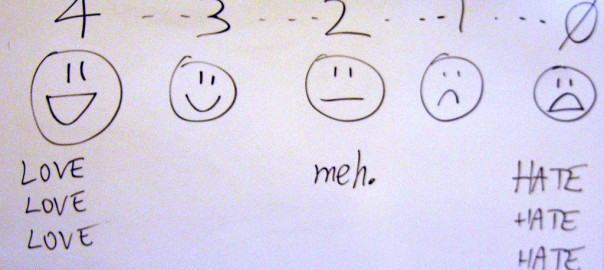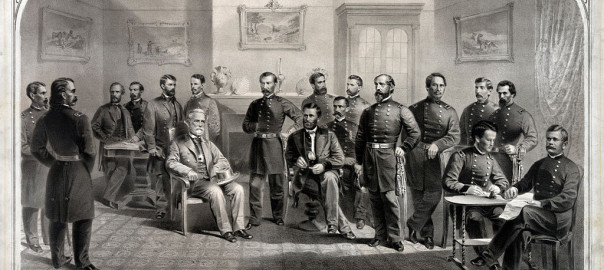This past week, my company held its annual performance evaluations. Our company has a pretty simple process – a short form completed by both the employee and the supervisor, then discussed in a one-hour meeting. The evaluations were partly about past performance, but largely dealt with our goals for the coming year and any obstacles to our performance. Our corporate culture revolves around weekly and monthly meetings that are focused on our tasks, so someone who was outright failing to live up to his obligations would know well before the annual evaluation. I found these evaluations to be a good time to talk about bigger picture issues, including longer term career goals.
I’ve been in organizations with more formal evaluations and some with much less or nonexistent evaluations, with both longer and shorter leashes. When I was delivering pizzas, your “performance evaluation” happened every single night. Poor performing drivers were weeded out quickly; if your work took a sharp dip south (as happened to one driver I knew), it didn’t matter what your annual record might be – you’d be on your way out.
In most corporate environments, though, my performance evalutions have revolved around annual goals tied to my job description. They’ve usually include a rubric of corporate values or performance measurements – teamwork, leadership, effectiveness – with some sort of scoring scale. Usually, these goals have related directly to my daily work, except in one unfortunate case when not only did my annual goals have very little to do with my actual work, but they were changed every few months by my supervisor, making it impossible to know whether I was really performing up to expectations.
Celebrating Achievements, Receiving Feedback
I find performance evaluations to be incredibly stressful. At the end of a typical day, I’m much more likely to worry about all that I haven’t gotten done than to celebrate the things that I have gotten done. When I started my current job, my wife bought me an accomplishments journal that I could use to keep track of what I’ve done. I don’t update as much as I’d like – due to forgetfulness and neglect, rather than a lack of activity – but I can use my daily journal as a reminder of how I’ve spent my time. Continue reading Evaluating Your Performance



